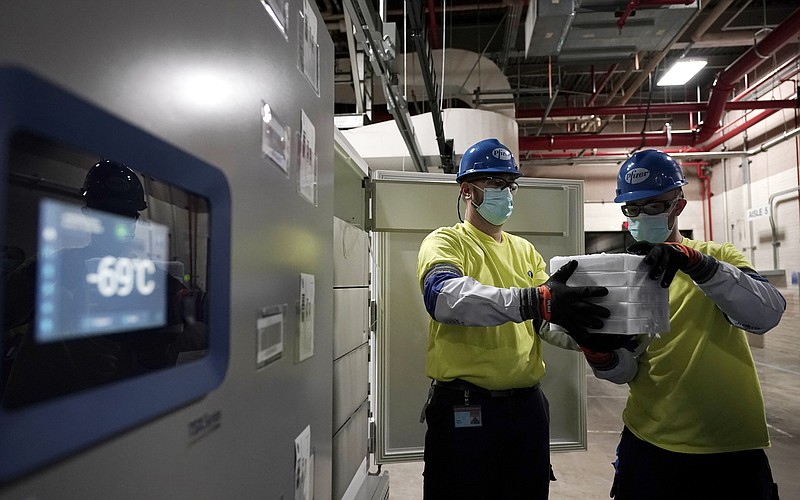The vaccine's here.
What better news could Americans get during this holiday season?
It will be a while before it reaches the average, non-health-compromised Americans, but the first doses of the Pfizer-manufactured coronavirus vaccine were administered in the United States Monday.
Deliveries are out to every state, and the first doses were to go to health care workers and nursing home residents. Health care workers have been putting their lives on the line every day since the virus crisis first deepened nine months ago, while nursing home residents have been the hardest hit - 40% of virus deaths to date - because of their often compromised immune systems.
Almost 3 million shots are available immediately, but officials said some 100 million Americans could be vaccinated by the end of the first quarter of 2021.
As fabulous as the news is, two things are vital to remember.
The first is that even though people will begin to be vaccinated, Americans must not let their guard down. We still need to wear masks, social distance from others, not gather in large groups, protect the most vulnerable and frequently wash our hands.
It sounds downright mean to suggest that holiday gatherings should be limited to a few people in this usual season of parties and merriment, but that is what top health officials recommend. No one, after all, would want a holiday gathering to be better remembered as the instance when several family members were infected with the virus rather than for Aunt Betty's fabulous cooking or Uncle Tom's famous eggnog.
And, we're quite sure, a more intimate celebration both won't demean the marking of the Christ child's birth or the coming of Santa Claus. Both can go on, virus or not.
The second thing to remember is that the more people who agree to get the free vaccine, the sooner the virus will disappear and the sooner life will return to normal. A recent Associated Press-NORC Center for Public Affair Research survey found that about half of Americans want to get the vaccine - which takes two injections, three or four weeks apart, depending on the particular vaccine - but that a quarter don't want to and another quarter aren't sure.
Scientists have assured the public that politics did not rush the vaccine and the fact it was created under one presidential administration should not keep those who did not care for the administration from getting it.
Americans, instead, should celebrate the fact the vaccine has arrived, is safe and make plans to receive their inoculations as soon as they become available.
